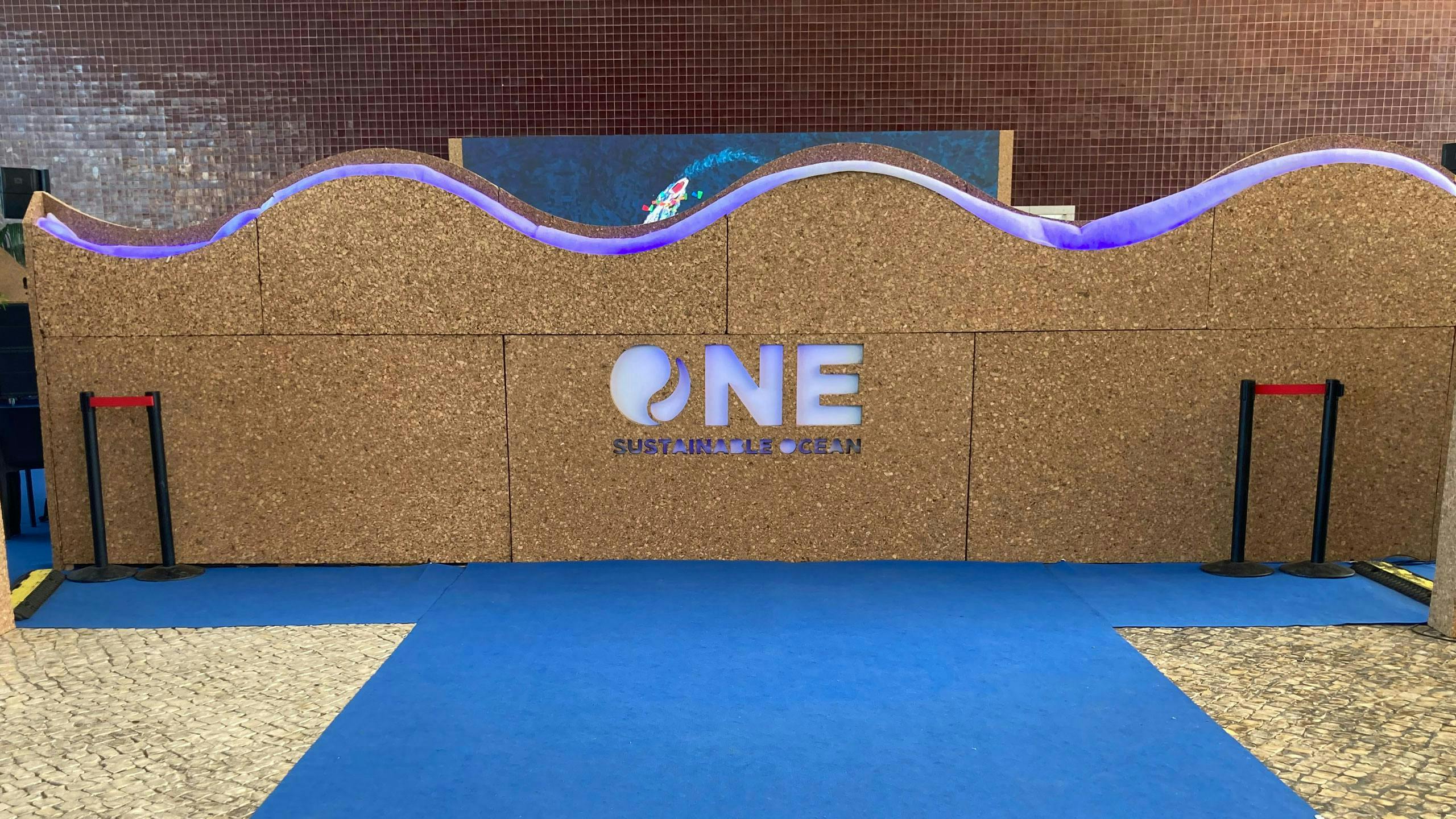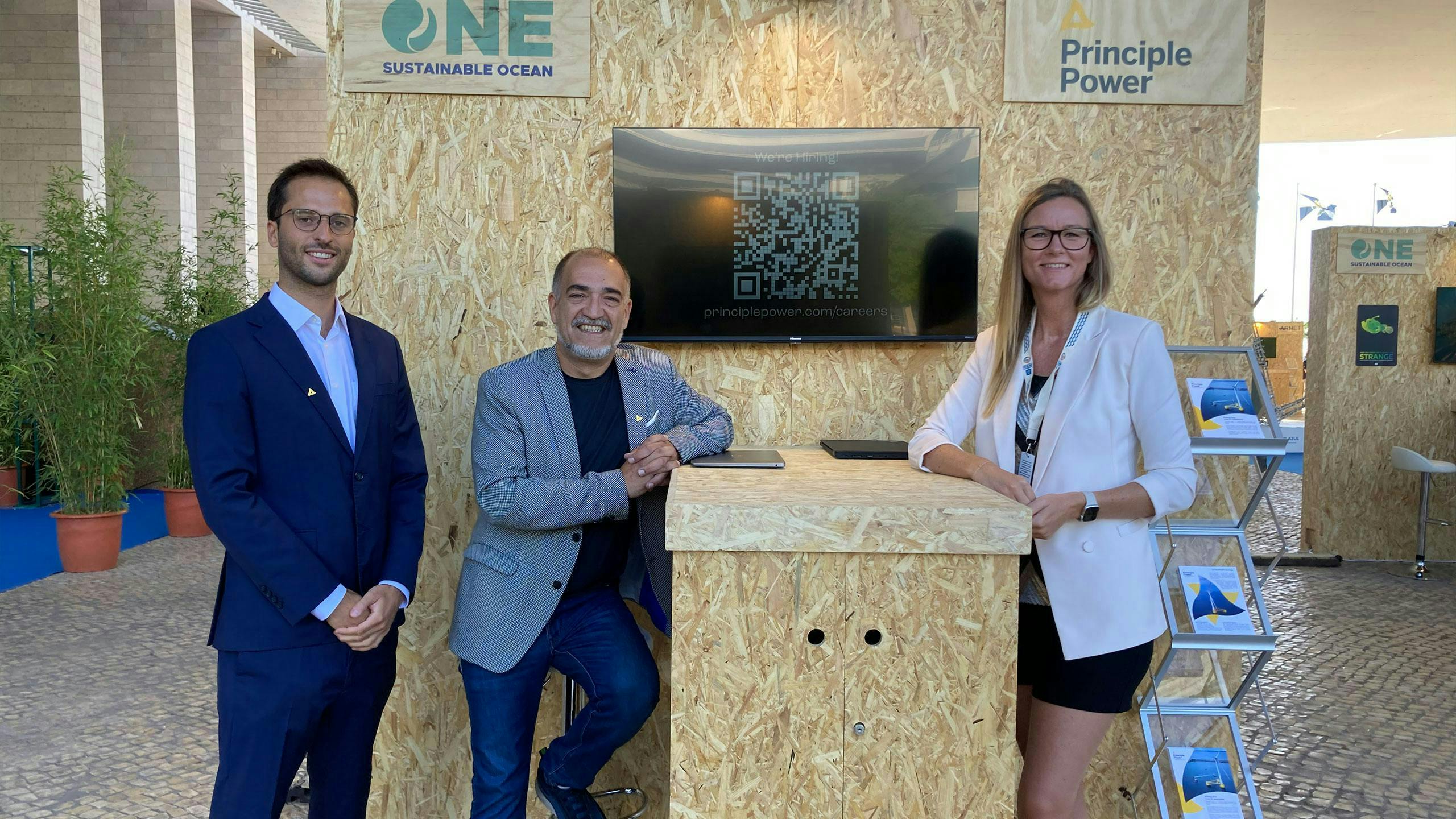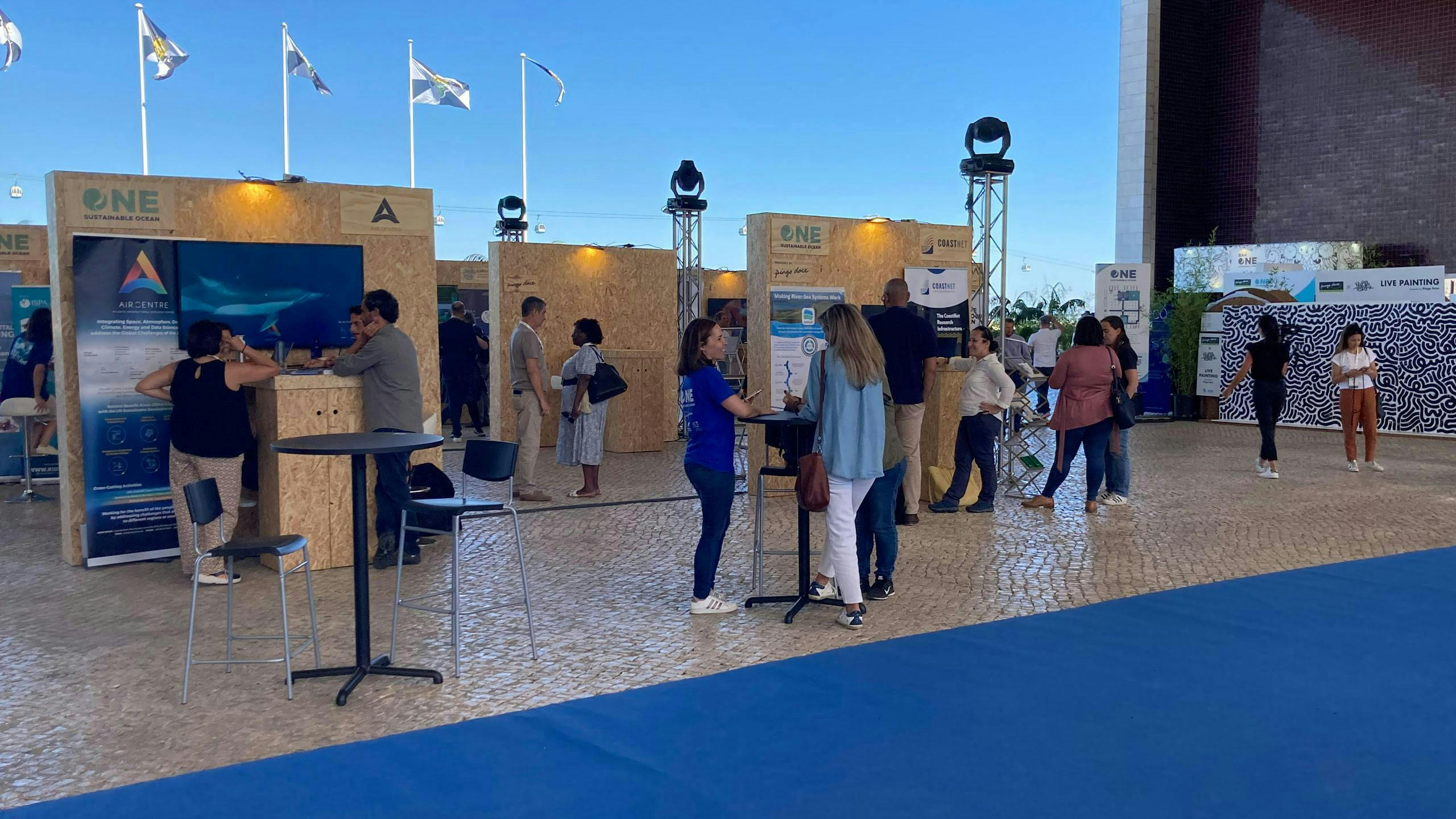One week is not enough: Reflections from the 2022 UN Ocean Conference
Floating offshore wind is a flagship for a healthy blue economy
by Rui Braz, Marketing and Communications Specialist

More than 6 000 participants, including 24 Heads of State and Government, attended the UN Ocean Conference in Lisbon, the week from June 27 to July 1, to address the challenges that come with "Scaling up ocean action based on science and innovation for the implementation of Goal 14: stocktaking, partnerships and solutions", the overarching theme of the Conference.
In the Conference’s final Lisbon Declaration, world leaders admitted to the “collective failure” in addressing the global environmental challenges the ocean faces and reaffirmed the importance of implementing the 2015 Paris Climate Agreement, calling for science-based and innovative actions, along with international cooperation, to provide the necessary solutions. The Paris Climate Agreement set a goal to limit global warming to 1.5º Celsius when compared to pre-industrial levels, whereas today we’re looking at a worrisome 3º C increase. Getting back on track requires one such science-based solution: the deployment of renewable energy on a massive scale.
Restoring the balance: giving back to the ocean
The ocean is the largest ecosystem on the planet and hosts immense biodiversity. The ocean provides us with oxygen and helps to regulate the climate.
At the One Sustainable Ocean side-event to the main UN Ocean Conference, organized by Fórum Oceano, the Portuguese cluster for the Blue Economy, Principle Power joined dozens of eNGOs, universities, public research bodies, and private companies that took this opportunity to showcase their work towards restoring the balance between what we can responsibly get from the ocean and what we can give back, helping it heal from our collective neglect.

Principle Power's team at the One Sustainable Ocean side-event to the UN Ocean Conference

One Sustainable Ocean side-event to the UN Ocean Conference

One Sustainable Ocean side-event to the UN Ocean Conference
We met with people tackling micro-plastic pollution, approaching sustainable urban development projects the size of Belgium with a 100% renewables mindset, producing biofuel from algae while trapping carbon, and digitizing fisheries for stock management and conservation and reduced environmental impact, among many others.
It is becoming increasingly clear that all these players must come together and work in cooperation to deliver a truly blue economy that emphasizes all three pillars of sustainability: environment, economy, and society.
A blue economy is, by definition, environmentally sustainable, inclusive, and climate-resilient. It will involve major industries such as fisheries and aquaculture, leisure and tourism, shipping and port activities, energy and seabed mining, as well as new high-tech sectors such as marine biotechnology and renewable energy, of which floating offshore wind is key.
Floating offshore wind: a 3-in-1 solution for energy, economy, and the environment
Offshore wind stands at the intersection between clean energy production and ocean protection. Renewable energy is already cheaper than conventional sources of energy like coal and natural gas and it has a net positive environmental impact. Furthermore, offshore wind is the only renewable energy generation technology that can realistically scale to meet the global energy demands – in fact, it could theoretically scale up to 18x the world’s energy demand if all the wind’s power would be harvested.
Over 80% of the global offshore wind resource lies in waters over 40 m deep, creating demand for proven technologies that enable projects to be built in those deeper waters – such as Principle Power’s WindFloat® technology, one that we have tested and proven in Portugal, with the 25 MW WindFloat Atlantic project, and in Scotland, with the 50 MW Kincardine Offshore Wind Farm. The WindFloat® enables offshore wind turbines to be sited in any water depth or seabed condition, unlocking offshore wind potential worldwide and allowing projects to harvest the best wind resources with minimum impact to other ocean users or the environment.
The Global Wind Energy Council (GWEC) released its 2022 Global Offshore Wind Report at the UN Ocean Conference. The report shows the offshore wind industry had its best-ever year in 2021, with 21.1 GW of new capacity connected to the grid worldwide, but it also shows that, as the industry prepares to deliver on the ambitious targets put forward by governments in search of energy security and affordability while keeping up with net-zero targets, a huge amount of work has yet to be performed.
According to the International Energy Agency (IEA) and the International Renewable Energy Agency (IRENA), we must deploy 2 TW of offshore wind capacity by 2050 if we are to have a chance of limiting the rise in global temperature to 1.5°C. We need to engage:
- Engage with the climate community: while wind is now central to the energy debate, it still goes very much unnoticed in the climate discussion
- Engage with governments and policymakers: to deliver 80 GW per year until 2050, the wind industry needs favorable regulatory frameworks and expedite leases for new offshore wind projects
- Engage with a global supply chain: to scale up to 80 GW per year, we need to create an “industrialized delivery system”, from fabrication yards to ports, from installation to O&M, to deliver a new era of growth for (floating) offshore wind
- Engage with local communities: the energy transition must be just and involve local communities. The economic benefits are obvious – coastal revitalization, job creation, energy security, and affordability –, but engaging responsibly with other traditional ocean users is key
Delivering 2 TW of clean power would cut roughly 12 gigatonnes of CO₂ emissions per year (or about one-third of global total net emissions) while powering 1 500 000 000 homes worldwide. It would also present tremendous economic upsides: estimates point to a $3 trillion contribution to the global economy on top of 42 million jobs in renewable energy-related functions by 2050. The cumulative gains in global GDP (USD 98 trillion) would greatly exceed the investment costs of transforming the energy system (USD 15 trillion). Building and maintaining large floating offshore wind projects will require substantial investments in workforce development, local supply chains, and supporting infrastructure like ports. With the right policies and regulations to support long-term, sustainable growth, this industry has the potential to create unparalleled economic growth in coastal communities around the world.
Circling back to the ocean, floating offshore wind has several environmental advantages over other technologies: low-to-no impact on the seabed and low-to-no visual and noise pollution from installation to operations and ultimately to decommissioning.
But we want to take it a step further: at the Les Éoliennes Flottantes du Golfe de Lion (EFGL) project in France, we are working with our partners Ocean Winds, Caisse des Dépôts, Eiffage Métal, and Vestas to deploy our WindFloat® technology in the Natural Park of the Gulf of Lion. This will be the first floating wind project to be located in a marine reserve. EFGL is being developed in close coordination with national and local agencies, as well as non-governmental stakeholders to ensure responsible siting, positive socio-economic impacts, and minimal environmental footprint. To that end, one of the floating platforms will feature Ecocean's Biohut® technology, artificial fish habitats that are affixed on the floating platform below the water line to foster biodiversity in and around the project. This example of multi-use of space is expected to demonstrate an accelerated artificial reef effect and create best practices for how floating wind farms using the WindFloat® technology can have a net-positive impact on the environment.
In summary: responsibly developed floating offshore wind provides clean, just, secure, and affordable energy at the scale needed to address the climate emergency at hand; offers unprecedented economic opportunities to coastal communities; respects and gives back to the ocean ecosystem.
Principle Power: a responsible ocean user
Principle Power is determined to be a responsible ocean user, developing its activities in cooperation with other stakeholders to build a viable blue economy. Our technology enables the deployment of floating offshore wind at scale and with minimal environmental impact through safeguarding biodiversity and promoting the sustainable use of our oceans. We remain committed to our vision of unlocking the full potential of floating offshore wind by providing the most competitive, safe, reliable, and environmentally friendly floating offshore wind solution.
At the Sustainable Blue Economy Investment Forum, a special UN Ocean Conference event, Principle Power joined 150 major companies in signaling their commitment to a healthy ocean by signing onto the UN Global Compact Sustainable Ocean Principles.
In addition to the Ten Principles of the UN Global Compact, the Sustainable Ocean Principles provide a framework for responsible business practices across ocean sectors and geographies. Companies signing on to the Sustainable Ocean Principles commit to assessing their impact on the ocean and integrating ocean sustainability into their overall strategy.
Conclusion: it will take more than a week
Multilateral dialogues like the UN Ocean Conference are a crucial way to get governments, industry, and stakeholders together to build the regulatory frameworks that can enable the responsible development of the ocean energy resources that we so desperately need to fight global climate change. Getting these dialogues started early will drive the best outcomes for coastal communities. We look forward to sharing our experience and suggestions through continued engagement.
Building an offshore wind industry capable of delivering on climate goals will take continued commitment for years to come – but this is one opportunity we cannot miss!
The WindFloat® advantage
PerformanceFabricationInstallationInspection, Maintenance & RepairConnectionLocal CommunitiesEnvironmentServices
Project Development SupportConcept and Pre-FEED DesignFEED and Detailed DesignProject Execution SupportInspect, Maintain & RepairEnd of Life Services



